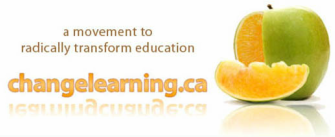|
This Policy Proposal, from the 21st Century Learning Initiative in the UK, is written to assist those in positions of influence to initiate powerful changes to current educational arrangements. The circumstantial evidence for such a transformation of learning is drawn from the best in research and practice from around the world. The paper shows that better informed, and more effective, models of learning could be organised through a redistribution of expenditures and responsibilities, at a total cost no greater than current levels of expenditure.
1 Comment
If young people are to be equipped effectively to meet the challenges of the 21st century it is surely prudent to seek out the very best understandings from current scientific research into the nature of how humans learn before considering further reform of the current system.
This article by John Abbott and Terence Ryan appeared in the Spring, 1999 issue of Education Canada. Rather than thinking of the brain as a computer, cognitive scientists now utilize a far more flexible, biological analogy, where the brain is seen as a unique, ever-changing organism that grows and reshapes itself in response to use. In this article, John Abbott and Terence Ryan discuss how emerging brain research that supports constructivist learning collides head-on with many of our institutional arrangements for learning.
The article first appeared in the November 1999 issue of Educational Leadership. We have all witnessed the apparent ‘craziness’ of adolescence. Typically, the rebelliousness, risk-taking and contrary behaviour has been chalked up to raging hormones.
Read more This Policy Proposal, from the 21st Century Learning Initiative in the UK, is written to assist those in positions of influence to initiate powerful changes to current educational arrangements. The circumstantial evidence for such a transformation of learning is drawn from the best in research and practice from around the world. The paper shows that better informed, and more effective, models of learning could be organised through a redistribution of expenditures and responsibilities, at a total cost no greater than current levels of expenditure.
Although many people have begun to understand the importance of the [[early years]] to human development, achievement and lifelong success, we have been slow to recognize the elephant in our midst—the adolescent learner. Dropout statistics, plummeting rates of school connectedness, declining academic performance and an increased dislike of school are [[signs of trouble]] underlining a disturbing pattern of disengagement as youth enter their teens. It seems that we may be [[getting it wrong]] for adolescents learners more than anyone in our schools.
Read more We now know more about how humans learn than we ever have before. Research in everything from evolutionary biology to cognitive science to neurobiology has contributed to our current understanding. Some information is very new, like the amazing insights only recently available through brain-imaging technology. Other pieces of information are not so new, but they paint a new picture when they are put together with different pieces of the puzzle.
There is, of course, no way to summarize everything about human learning in a few pages on a website. Nor is that the intent. There are far too many individual details on everything from optimal group size to how minute portions of the brain decode written language. This site is instead about intersection and synthesis – about stepping back to look at the big picture instead of latching on to disconnected bits of information to try to repair problem areas here and there. Read more If young people are to be equipped effectively to meet the challenges of the 21st century it is surely prudent to seek out the very best understandings from current scientific research into the nature of how humans learn before considering further reform of the current system.
This article by John Abbott and Terence Ryan appeared in the Spring, 1999 issue of Education Canada. |
Categories
All
Archives
August 2015
|

 RSS Feed
RSS Feed
